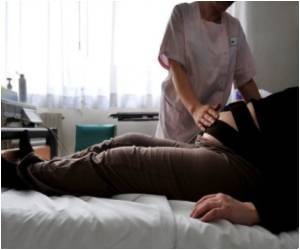
A third of those who had a forceps delivery suffered some muscle trauma.But overall women who had the spinal analgesia ran a lower risk of damage.
Injury to the pelvic muscles during childbirth is known to be a key risk factor for organ prolapse, reports the BBC.
Women who have given birth once are four times more likely to require hospital attention because of prolapse than those who have no children, and those with two vaginal births eight times more likely.
Prolapse occurs when the pelvic muscles become so weak the organs they support - such as the bladder and the uterus - begin to drop down.
Symptoms vary, but can include sexual problems as well as both urinary and faecal incontinence - or conversely chronic constipation, depending on how the muscles are affected.
Advertisement
Over a third had undergone either a planned or emergency Caesarean section, and there were no cases of muscle damage or tearing among these women.
Advertisement
The risk of muscle tearing was slightly lower among those whose birth had been assisted with a ventouse - a suction cup, which fits on the baby's head - than those who did not have an assisted delivery.
But the use of forceps did push up the risk of damage, with a third of these births resulting in muscle injury.
The length of labour was key: a long period of pushing was strongly associated with injury.
But overall, those who had opted for an epidural, the spinal analgesia which blocks out some or all of the pain of contractions, had a lower risk of damage than those who had none.
Two-thirds of the women who suffered damage had no epidural.
The researchers, led by Dr Clara Shek, speculated there may be two reasons for this-Firstly, women who have epidurals tend to be told when to push as they can no longer feel contractions.
This means the potential damage from premature or over-pushing is reduced.
And physical changes in the paralysed muscle may also mean it is less likely to suffer injury.
The study has been published in the BJOG, the leading obstetrics journal.
Source-ANI










